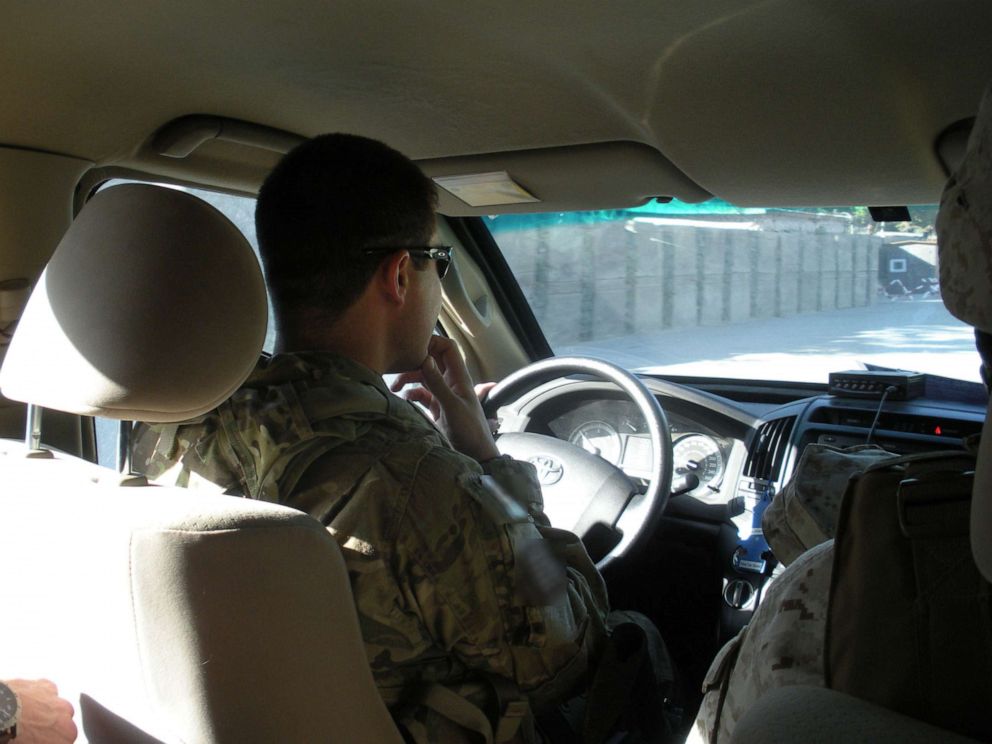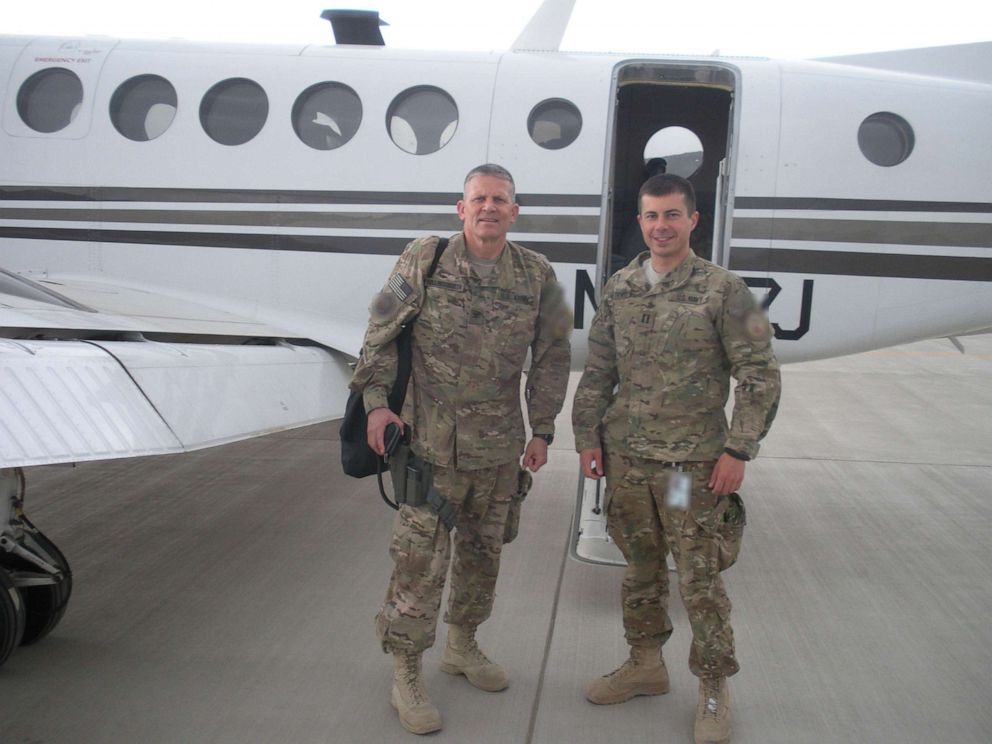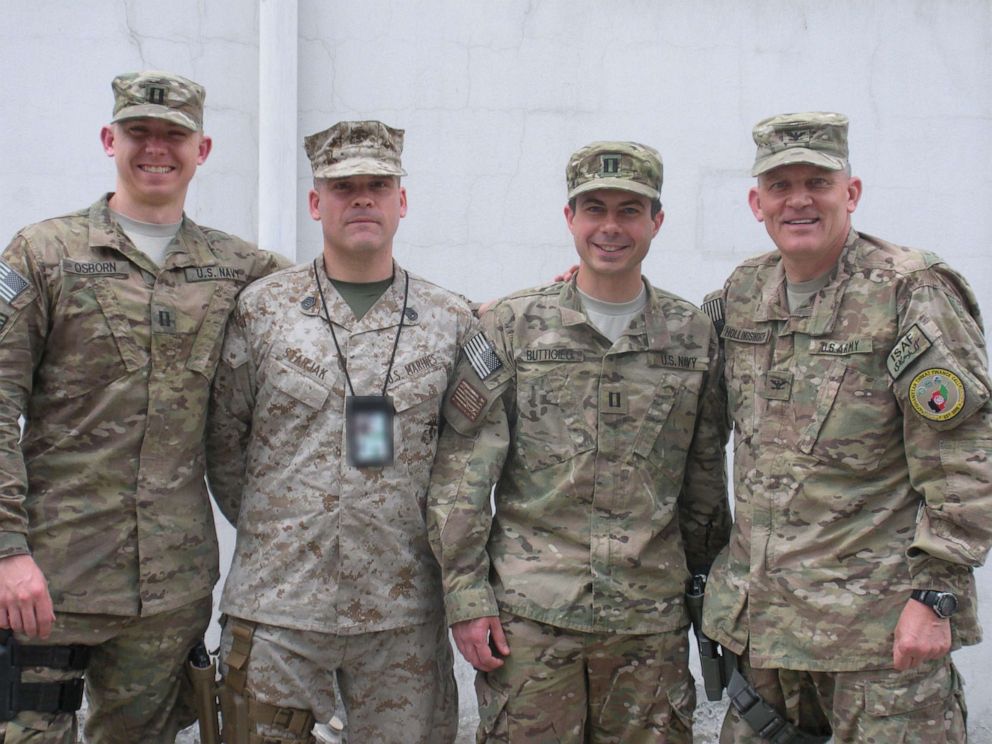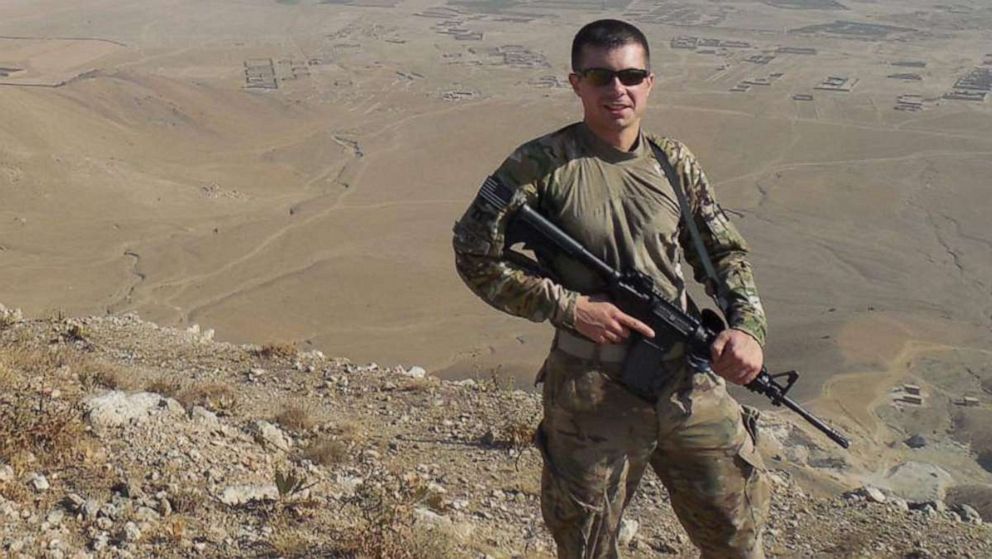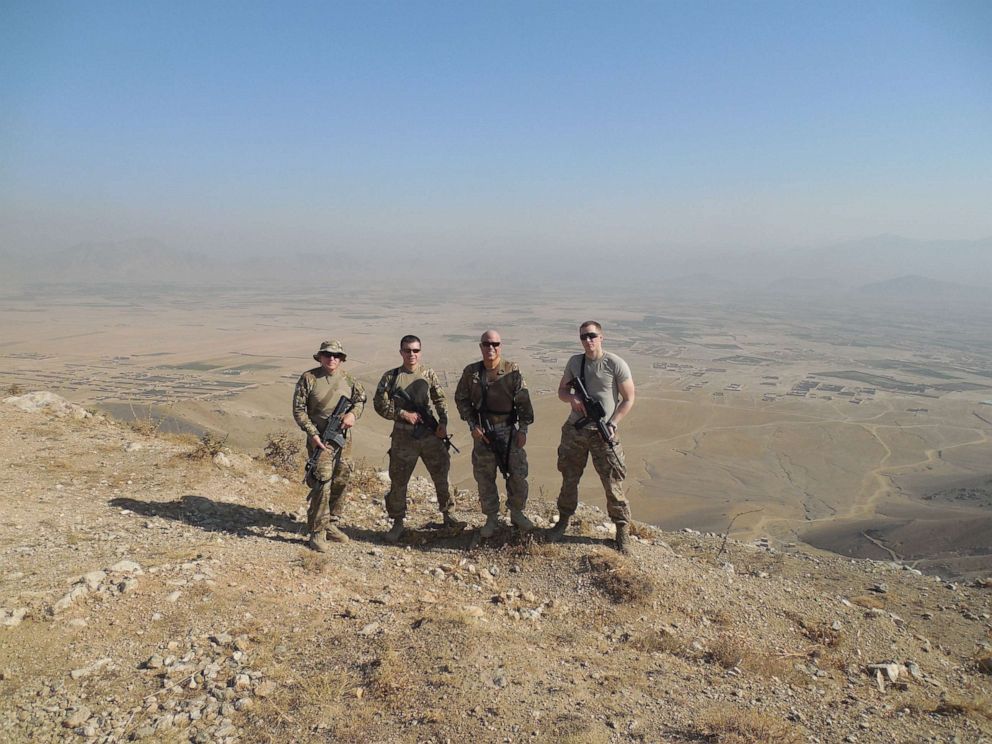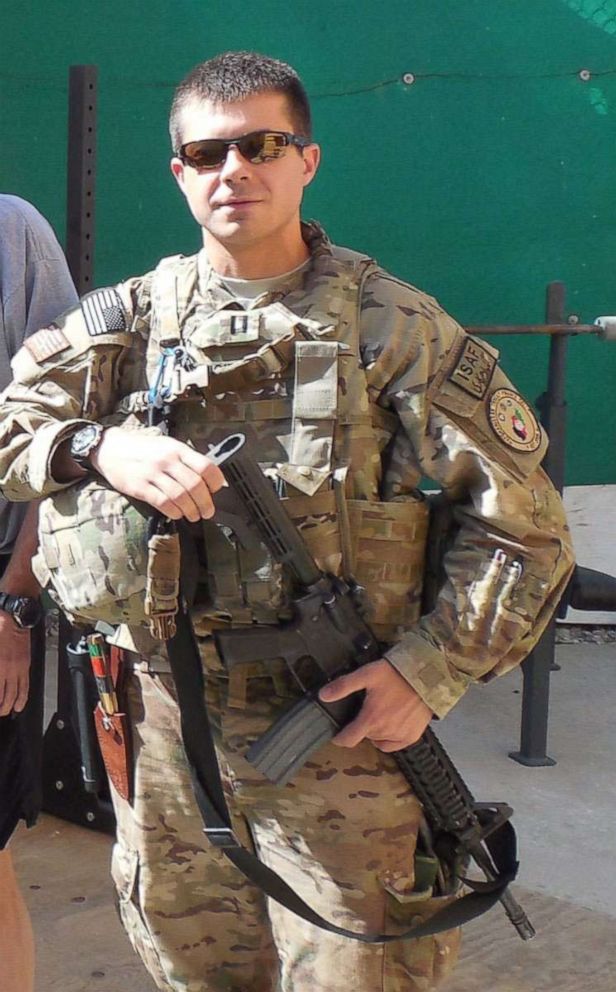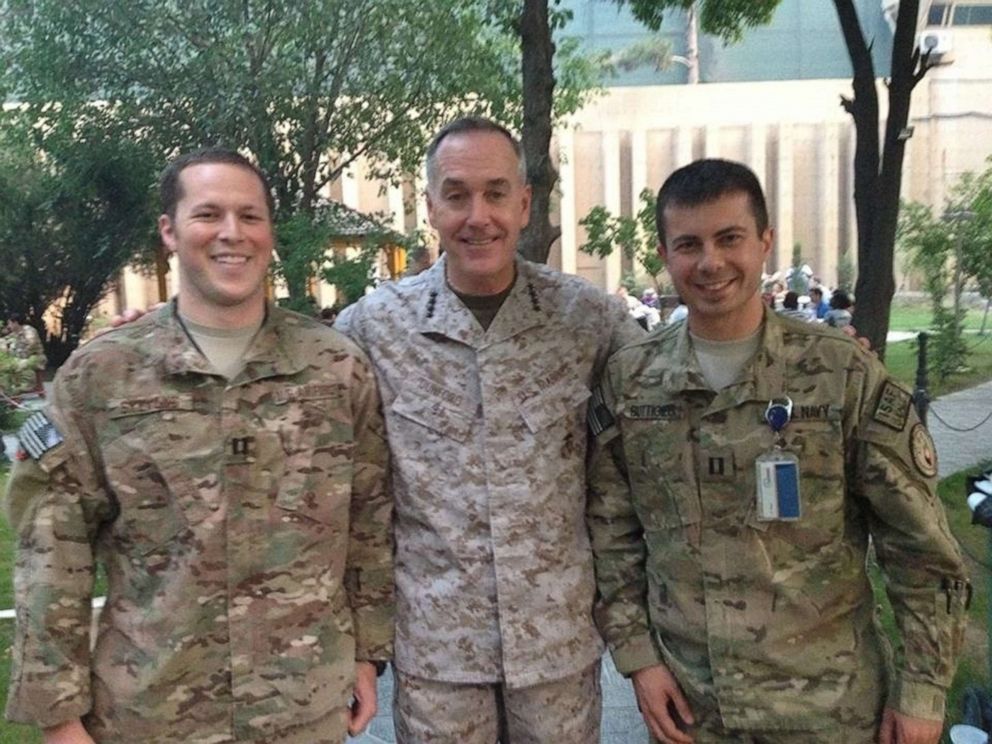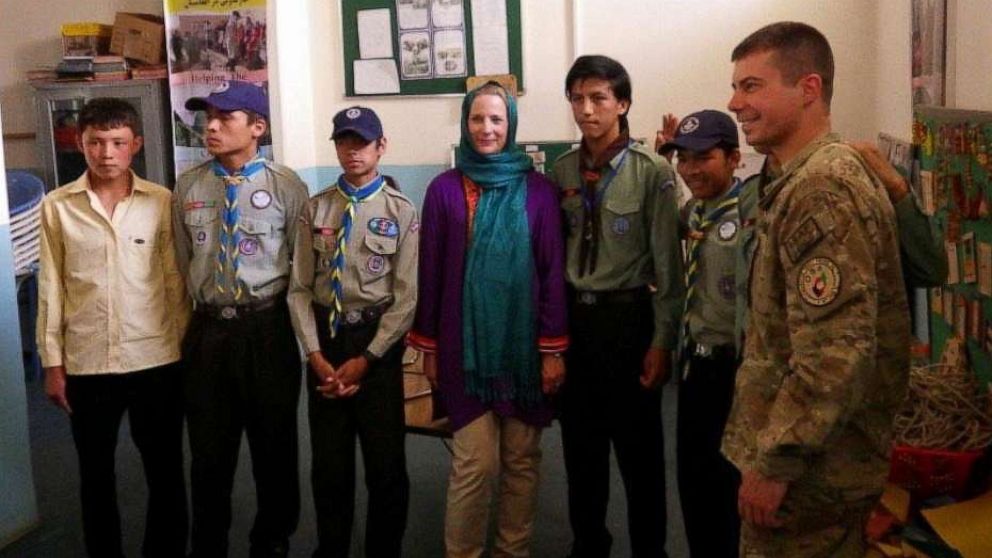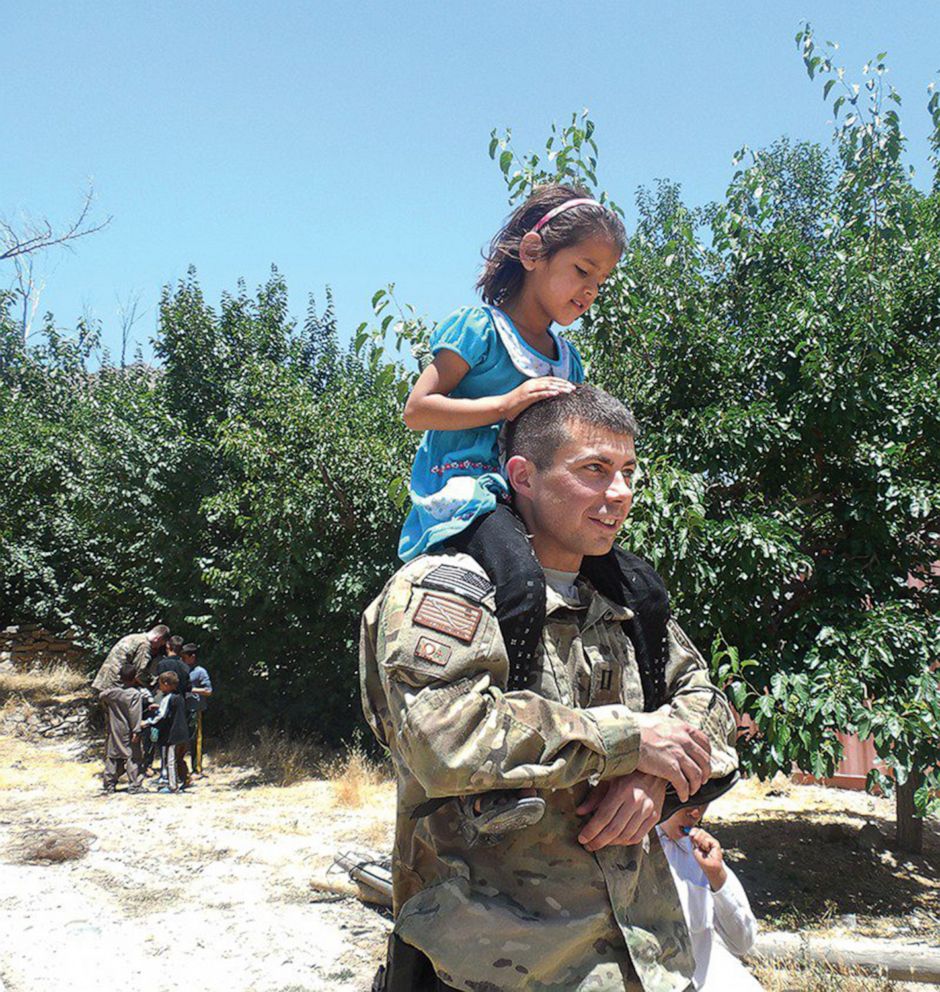From intel analyst to a military ‘Uber’: Inside Mayor Pete Buttigieg's Afghanistan deployment
Far from dramatic tales of heroism, Buttigieg offers candid take on Afghan tour.
Pete Buttigieg was driving in one of his regular military convoys in Kabul, Afghanistan, when, he said, things looked like they could get "really, really spicy."
A vehicle had struck his, and suddenly a man was approaching. Buttigieg was on the alert for an ambush. But then the man bent down, picked up a dislodged car part and went on his way.
It was, Buttigieg recalled, just a fender bender.
Buttigieg's military service is a key component of his once-unlikely White House bid. He's one of three veterans in the Democratic race, aiming to take on a president who said he didn't serve in Vietnam, at least in part, because of bone spurs.
But unlike the dramatic stories of heroism or perseverance that have defined some past presidential campaigns, Buttigieg candidly described an experience more likely to ring true to the thousands of Americans who have served farther from the front lines.
In interviews with ABC News, Buttigieg, his superior officers in Afghanistan, and others paint a portrait of a six-month deployment during which he drafted intelligence reports from inside a shipping container, ate midnight rations of breakfast for dinner and shuttled officers around Kabul or, occasionally, further afield. And while there was a constant undercurrent of danger from rocket attacks on the base or roadside bombs, Buttigieg's own account of his time overseas is, like much of his candidacy, a departure from the norm for a presidential biography.
"I was basically Uber for our unit," the former Navy lieutenant joked.
Inside Pete Buttigieg's Afghan deployment
From campaigning for Obama to a recruiting office
Buttigieg's journey to Afghanistan started before he was born, in what he called a "family tradition" of military service. Buttigieg said his grandfather was a career military physician, and his grandfather's brother died in a plane crash in World War II. Family lore on his mother's side goes back further, to a distant relative who supposedly served in the Revolutionary War.
In the shadow of such history, Buttigieg said he'd long considered military service, but it wasn't until he volunteered to help the Barack Obama campaign in 2008 in Iowa that he was inspired to sign up. At the time, Buttigieg's day job was working for the global consulting firm McKinsey and Co.
In Iowa, he said, he knocked on a door and met a young man with freckles. The man, whom Buttigieg thought was barely old enough to vote, told him that he wanted to go to the upcoming caucus but couldn't because he was shipping off to basic training.
Buttigieg described recognizing that military service had increasingly become a normal route out of high school for working class kids in country's midsection, and rare for those who, like him, had a middle-class upbringing that led him to Harvard.
"The fact that I had been to an Ivy League school," he said, "made me, statistically, extremely unlikely to serve in the same way it made these kids I kept running into in south central Iowa extremely likely to serve."
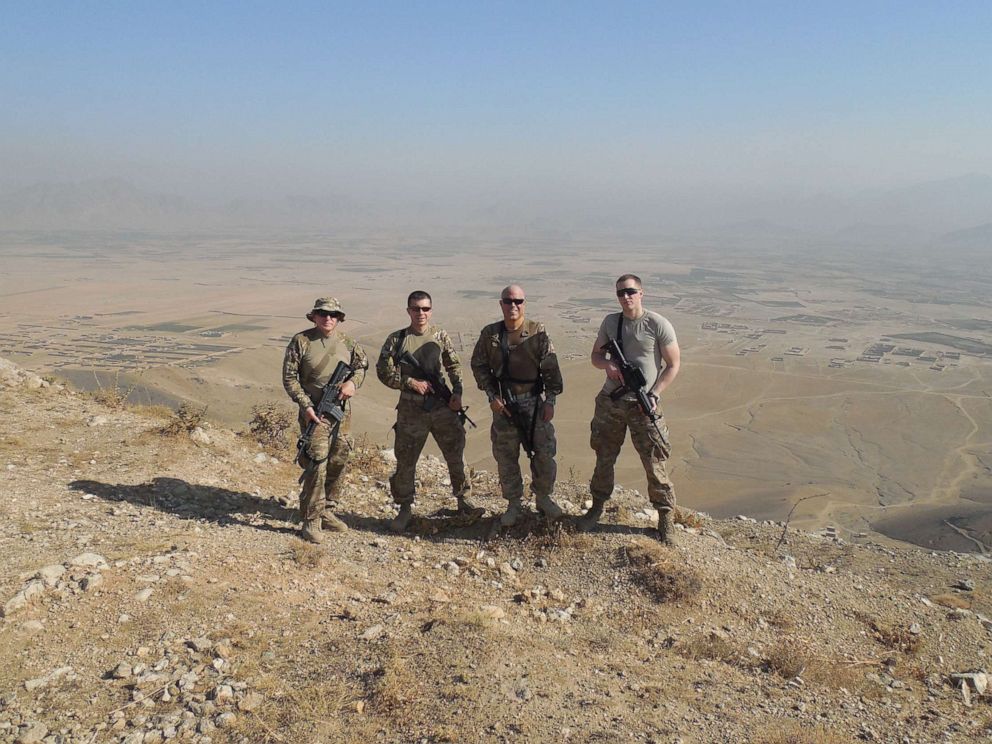
Buttigieg joined the Navy Reserve in 2009, when he was 27, as an intelligence officer through the Reserve's direct commission program offered to applicants with academic degrees. It made him an officer without first having to go through the months of officer training, as most did.
He did have to go through basic training, however, and he told ABC News he got the full experience: being woken up in the middle of the night on the first night, superiors inspecting the rooms for the slightest infractions. Buttigieg said he and his roommate became skilled at polishing shoes and would polish others' shoes in return for their expertise at, say, precisely making their beds.
"You know all that stuff you hear about in a military environment to kind of whip us into shape. But, yeah, we figured it out," Buttigieg said.
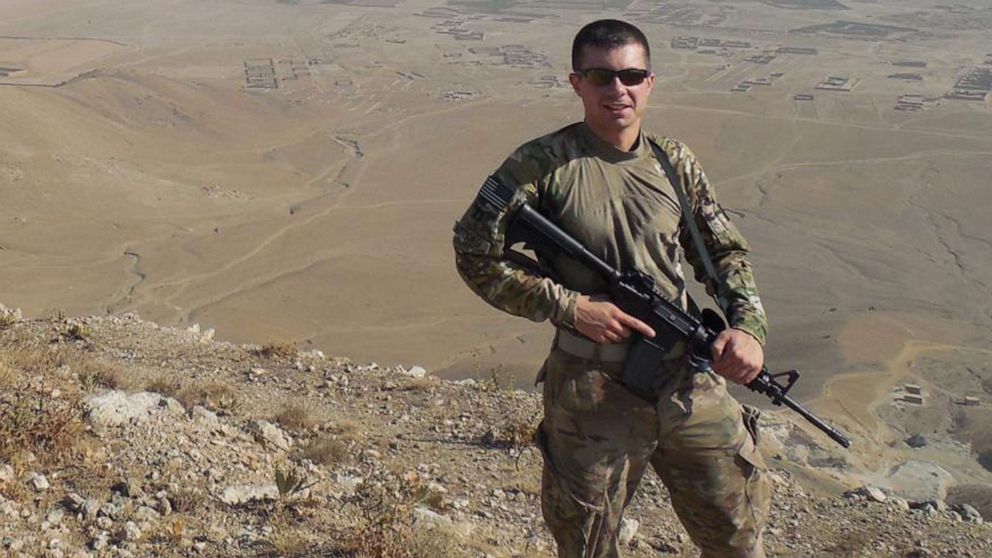
The direct commission program is somewhat controversial because many see it as a fast track to military credentials for the politically ambitious, and Buttigieg acknowledged that he felt "pressure" to earn the rank he'd already been awarded.
"I remember feeling it the first time I walked around the Great Lakes in uniform ... and these enlisted kids are saluting me," he said, referring to Naval Station Great Lakes. "And I'm thinking, 'All right, I'm collecting these salutes, but what am I going to do to earn them?'"
Thomas Gary, a senior petty officer at Great Lakes at the time who knew Buttigieg, took no issue with Buttigieg's use of the direct commission program and said his impression of the Democratic candidates was "smart, smart, smart."
"He was thoughtful and very considerate, not just of our jobs but also of the junior sailors and learning not just his job but his role and his function in being able to help support, lead and guide junior sailors," said Gary, who was referred to ABC News by the Buttigieg campaign.
In 2010, Buttigieg ran for mayor of South Bend, Indiana, and won in 2011 at age 29. The military didn't care much that their reservist was a mayor, and in 2014 Buttigieg got a call he had been expecting since he joined: He was told to pack for Afghanistan.
In Afghanistan, tracing terrorist cash
Buttigieg told ABC News he sought out an Afghanistan deployment because he wanted to be "where the heart of the action was" in the "area of greatest challenge." He had also been to the country about five years earlier to do economic development work for McKinsey and wrote in his book that he found the country "troubled but also hauntingly beautiful."
But when the phone actually rang, he felt a mix of fear and excitement "because, you know, this is what you train for when you're in the Reserve. The whole point of all the work you do is to be ready to mobilize. And now I was going to mobilize."
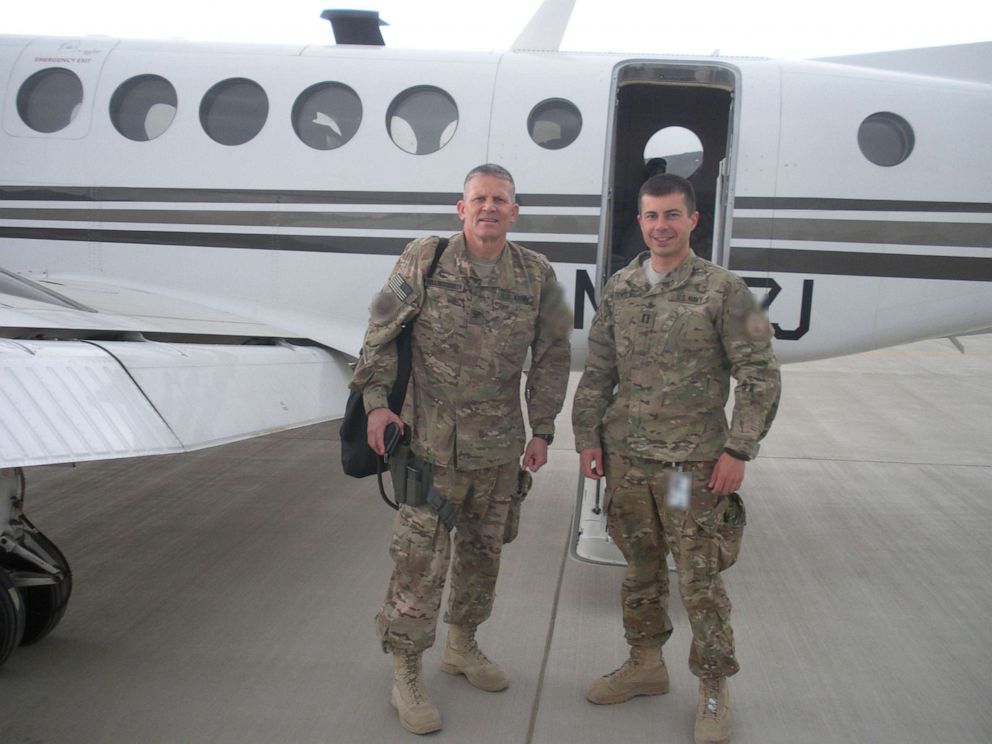
His job would prove an unusual one. Rather than deploying with the troops with whom he trained, he was sent to Afghanistan to join what was called the Afghanistan Threat Finance Cell, a multi-agency task force led by the Drug Enforcement Administration along with the military that also included representatives from departments including the FBI and Treasury.
By 2014 the cell's goal was to uncover the methods and networks by which the insurgency was acquiring funding and pass that information along to U.S. or Afghan forces in hopes of disrupting it -- sometimes through force.
"We dealt with things like bank fraud, money laundering, extortion, kidnapping, human trafficking and the opium-heroin trade," said Army Reserve Col. Guy Hollingsworth (ret.), the military commander of the task force when Buttigieg arrived. "And we would partner with folks as needed to try and root out some of that from a terrorist perspective."
Hollingsworth said the work meant consuming a stream of information in order to produce reports on the insurgent finance networks. Some of the information came from U.S. “sources” with insight into al Qaeda, the Taliban and the Taliban-affiliated Haqqani network, he said. Sergio Rodriguera, who was fellow Navy reservist assigned to a senior position in the task force years prior to Buttigieg's arrival, said the information could include anything from cables from the Central Intelligence Agency, to intercepts from the National Security Agency to open press reporting. The challenge was sorting through it all to pull out the important parts.
"And that's where Pete Buttigieg came in," Hollingsworth said.
A 'typical' day in a war zone
Buttigieg began his deployment in Bagram but soon was transferred to Kabul to be the task force liaison officer to the regional command there. With the 2014 drawdown in full effect, the task force was slimming, Hollingsworth said, leaving a small crew in Bagram and other officers, such as Buttigieg, spread out to other areas of interest for the cell.
On the U.S. base in Kabul, Buttigieg said he worked out of a makeshift office in a shipping container that he generally shared with one or two other officers.
In the mornings, after "chow," Buttigieg said he would process the latest intelligence and prepare updates for his superiors or participate in conference calls with people from other U.S. government agencies.
Both Hollingsworth and Paul Karweik, Buttigieg's commanding officer after Hollingsworth, said Buttigieg was an astute intelligence analyst.
"He knew the mission inside and out and he could articulate it well," Karweik said. Buttigieg was "very confident in his presentation and the information he had. ... He was very organized, very disciplined."
The information was passed up the chain of command, to U.S. or Afghan military or police forces for potential action, which could include attempts by combat forces to detain suspected financiers.
Buttigieg also served as a key liaison and conduit of information to and from the task force to the many various subcommands in Kabul, Hollingsworth said.
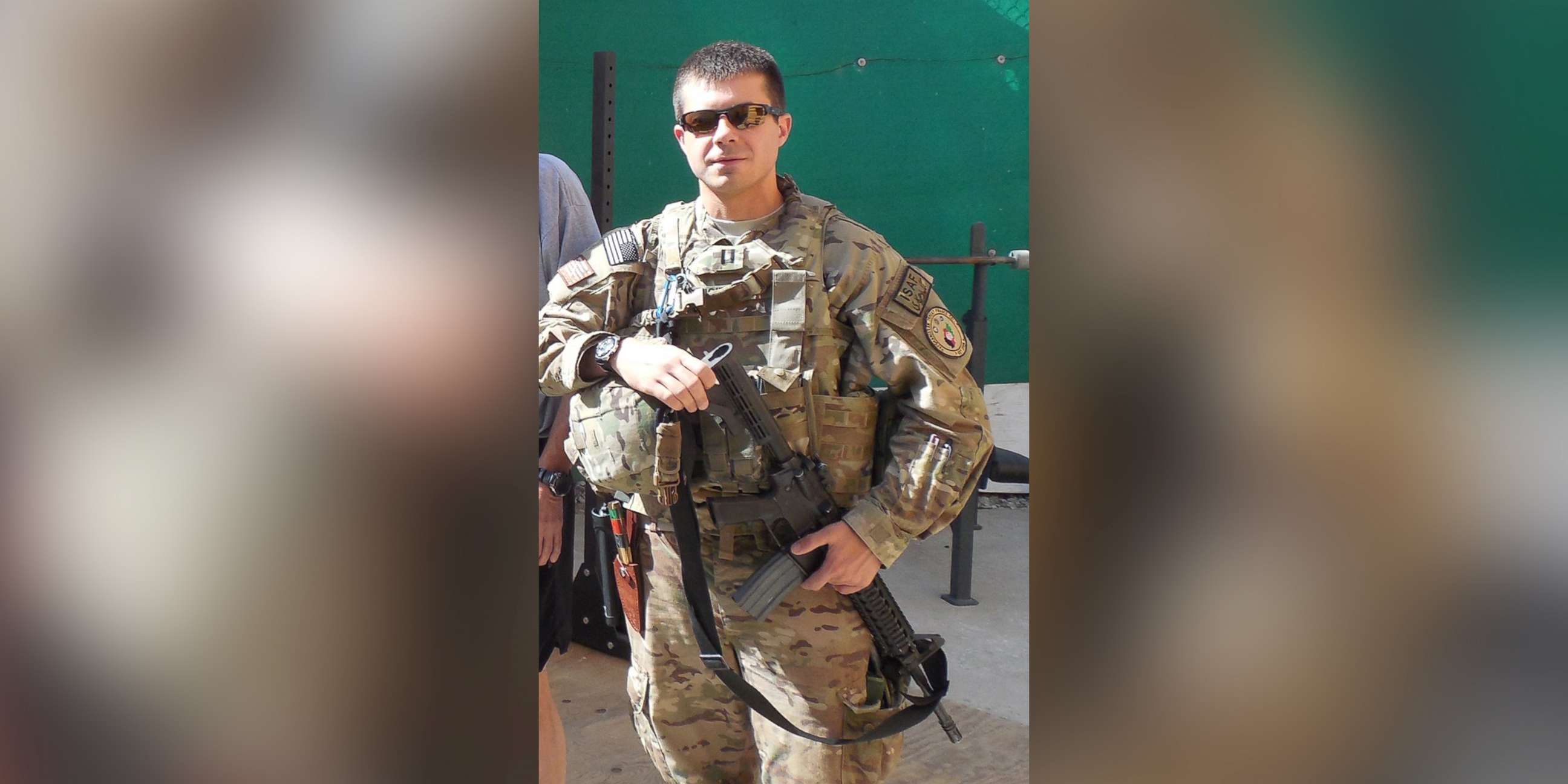
While living and working on base, Buttigieg said that he eventually grew accustomed to the all-too-common nearby explosions. He'd first experienced rocket attacks in Bagram, as blaring alarms urged everyone on base to seek shelter.
Andrew Stevens, who served in Kabul as an Air Force captain and became friends with Buttigieg, said he remembered a time when there were as many as three rocket attacks there in a week. Buttigieg said generally he could see or hear an explosion of some kind every few days.
At first, Buttigieg said, "It would take my blood pressure a few hours to go back to normal, but by the end, you're kind of numb to it. You just take a knee until the alarm goes off."
Buttigieg said that while those may have been the "most alarming moments ... the greatest risks would have been while I was driving."
'Either somebody gets to you or they don't'
In addition to his duties as an analyst, Buttigieg said his afternoons often involved driving senior officers around Kabul. There were also trips where Buttigieg volunteered to bolster the security for other convoys from the base.
"So a typical scenario, there might be that the boss needed to get across town to an Afghan police unit that we were interacting with," Buttigieg told ABC News. "Or, for more of an adventure, once in a while we'd have a vehicle movement all the way up to Bagram" about 40 miles away.
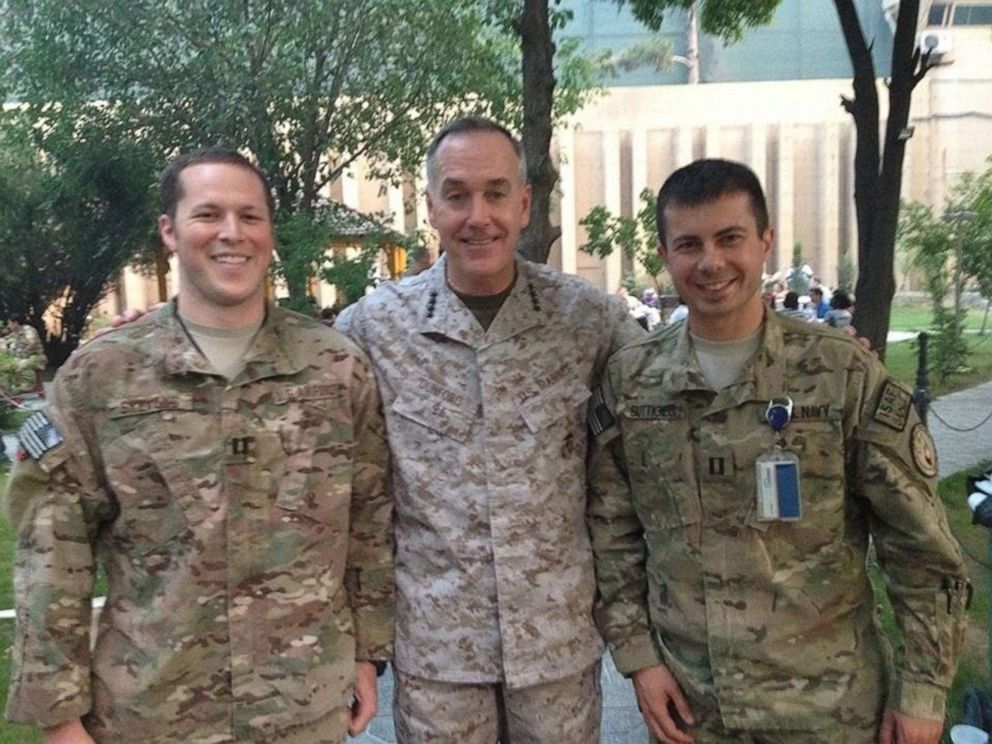
Several journal entries written by Hollingsworth and shared with ABC News mention Buttigieg accompanying him on trips to various meetings around the country. Sometimes they would fly in a small airplane or perhaps a helicopter if it was a distant location, but for Kabul the trips were often done in low-profile but armored SUVs.
He recounts in one, "We made our way across busy Kabul to meet with [strategic partners] this afternoon, which always requires a heightened approach to security in route and back."
It was from all this driving that Buttigieg called himself the unit's own "Uber," even if it was an armored and armed one.
Stevens, who met Buttigieg in a Kabul cigar club and later drafted him into a fantasy football league, said he was with him on several convoys where improvised explosive devices or ambushes were a constant concern.
"It's kind of weird because at the time you're just driving across the city," Stevens said, "but maybe the next day somebody is doing the same thing and gets blown up."
"That's kind of a matter of luck," Buttigieg said. "Either somebody gets to you or they don't."
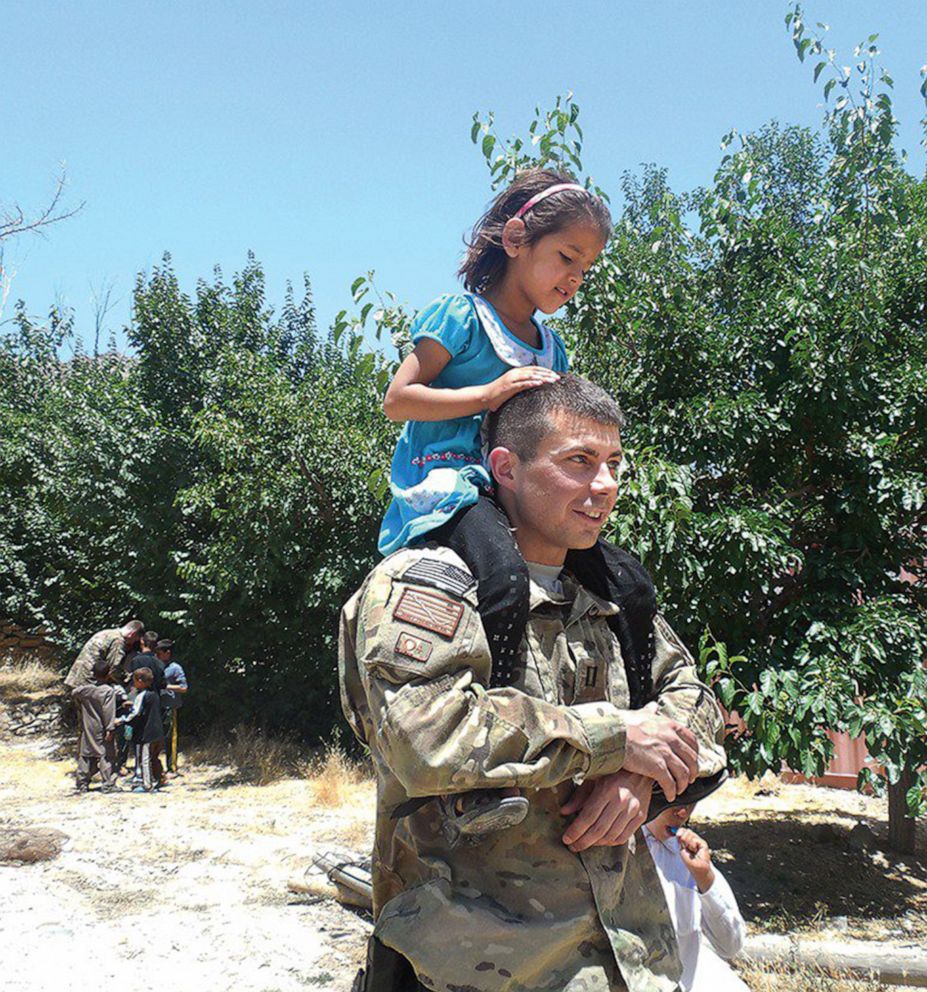
It didn't stop Buttigieg from jumping at the chance to get out of the base.
"Pete didn't shy away from his duties of using a long gun, a rifle, and providing security in a convoy," Karweik said.
The danger didn’t end once they got to the destination. Perhaps the closest he came to combat came after traveling with a superior officer to a base in the city of Herat, in western Afghanistan, as reported by The Washington Post. Buttigieg had set up a meeting there for the officer and they'd waited all day. But just minutes before the meeting was set to begin, they heard gunfire and "bangs and booms."
Buttigieg said they ran to the nearest bunker and hunkered down for a couple hours until it was all clear. Buttigieg said he was never totally clear on what happened but thought someone had made an attempt to get through the base's gate.
"That one was memorable," he said.
'Breakfast for dinner'
By nightfall, Buttigieg said they always tried to be back on base because "you really didn't want to be driving at night."
From there it was meetings and video teleconferences, talking to colleagues back in the Pentagon and other interagency task forces. By midnight, he said, he and his fellow service members would duck out for "midnight rations," which he said he enjoyed because it was "basically breakfast for dinner."
"And then there were always some pirated 'Game of Thrones' or something good to watch that you could pull onto your computer before bed. And then it off to bed and then back at it the next day," he said.
At some point in there, Buttigieg said, he would call home. Once a week, he'd join a conference call with his staff back in South Bend.
Before he was called to deploy, Buttigieg worked out a contingency plan with his staff so the city wouldn't be left leaderless. Still, he said he tried to keep up as much as he could with his hometown.
Hollingsworth said that he knew Buttigieg was a mayor because he had vetted him before Buttigieg joined the task force, but he and others said Buttigieg rarely brought it up. Buttigieg said he didn't think even his roommate in Kabul knew he was a mayor.
"He came in just like everybody else," Hollingsworth said. "There was no high horse that he arrived on. ... He was just a member of the team and tried to do what he could."
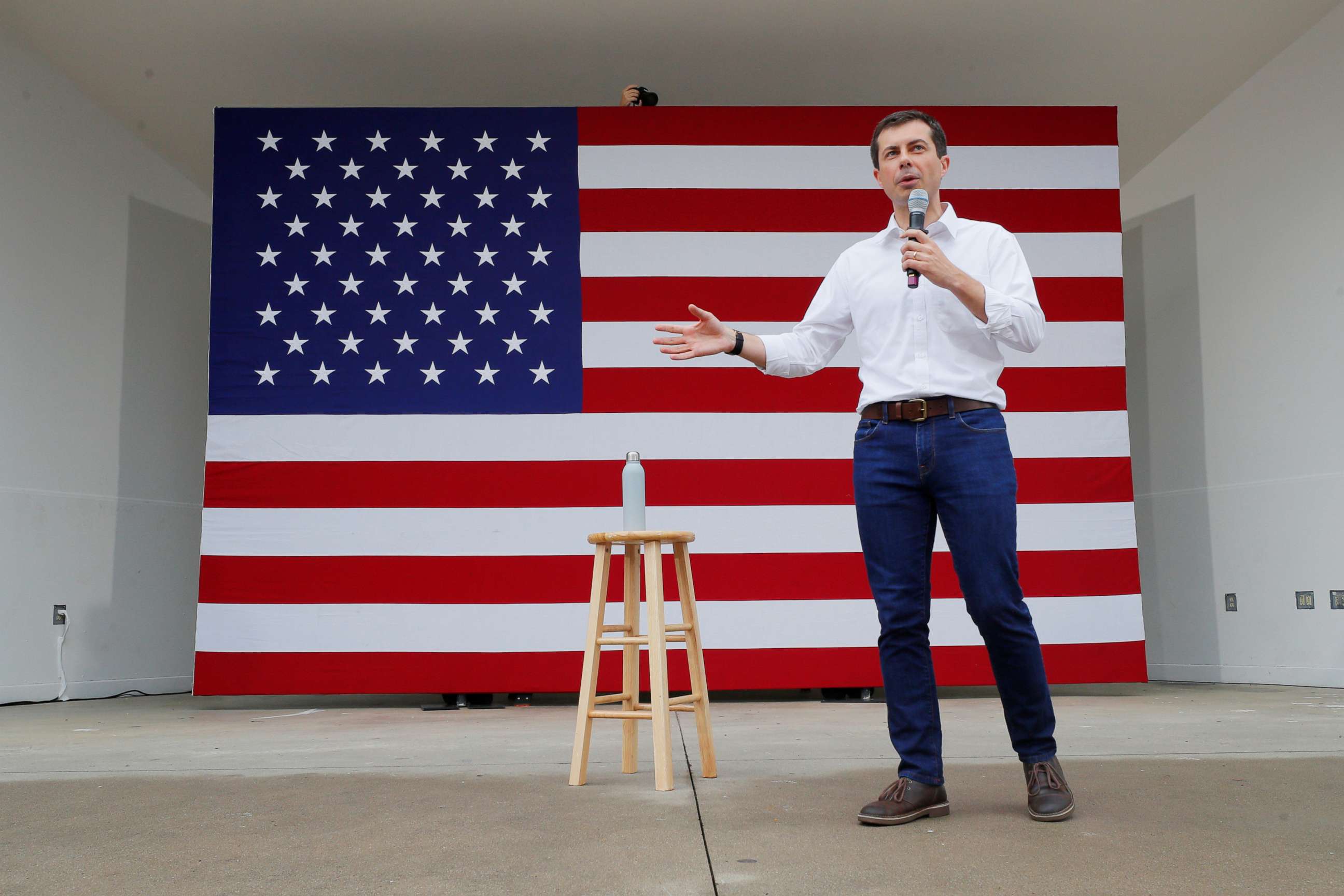
Buttigieg left Afghanistan in September 2014 and returned to the job of mayor in South Bend, along with Reserve duties in Illinois.
A year later, he came out as gay in his hometown newspaper. Though his deployment to Afghanistan took place years after the military repealed the Don't Ask Don't Tell policy, Buttigieg told ABC News he never brought up his sexual orientation.
At the time, Buttigieg said he was only out to a very few people close to him and "even though you definitely become close with people you serve with, I didn't really want to inject that with any of my friendships or professional relationships over there with people I was just getting to know."
In November 2017, Buttigieg left the Reserve but has said on the campaign trail his experience in uniform helped shape his views for the country.
"It's something that really affected me deeply, and it's a part of a lot of stuff that I talk about on the campaign," he said. "Not just foreign policy and security, but also when I'm talking about things like the value of national service, what I'm thinking about is the people I was there with who were totally different from me."
Buttigieg has put forward plans for such a national service so any American can "get that experience without having to go to war," and especially without needing to be a war hero.
